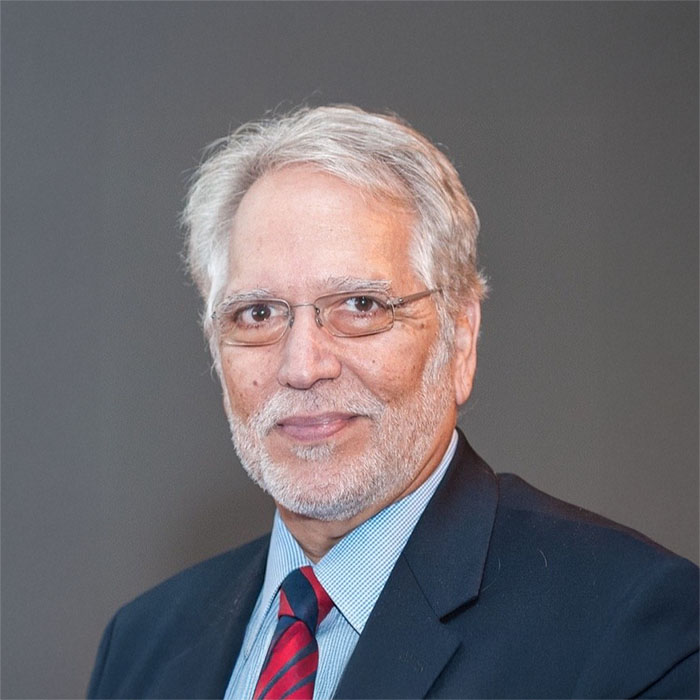Professor George P. Chrousos
George P. Chrousos, MD, ScD, MACP, MACE, FRCP is Professor Emeritus of Pediatrics and Endocrinology at the National and Kapodistrian University of Athens (NKUA), Director of the University Research Institute of Maternal and Child Health and Precision Medicine, and Senior Investigator at the Biomedical Research Foundation of the Academy of Athens with over 40 years of pioneering research in stress biology and neuroendocrinology.
He holds the UNESCO Chair on Adolescent Health Care at NKUA and serves as President of the Hellenic Pasteur Institute since 2024. George is Distinguished Visiting Scientist at the National Institute of Child Health and Human Development (NICHD), NIH, and Clinical Professor of Pediatrics, Physiology and Biophysics at Georgetown University Medical School. He is among the 100 most cited physician-scientists internationally with over 214,000 citations (Google Scholar 2024) and an H-index of 192, making him the highest cited clinical endocrinologist globally.
In 2024, he was elected as a Regular Member of the Academy of Athens, recognizing his extraordinary contributions to medical science. His groundbreaking research on the hypothalamic-pituitary-adrenal (HPA) axis and glucocorticoid signaling has revolutionized understanding of stress-related disorders, earning him the prestigious 2023 Transatlantic Alliance Award from the Endocrine Society and European Society of Endocrinology.
Read The hypothalamic–pituitary–adrenal axis and immune-mediated inflammation, Hypothalamic–pituitary–adrenal axis, neuroendocrine factors and stress. and Noncoding RNA Gas5 Is a Growth Arrest and StarvationAssociated Repressor of the Glucocorticoid Receptor. Read Stress and disorders of the stress system, The Concepts of Stress and Stress System Disorders. and Endocrinology of the stress response.
From 2001 to 2018, George served as Chairman of the First Department of Pediatrics at NKUA’s Aghia Sophia Children’s Hospital, historically Greece’s first pediatric department. Prior to returning to Greece, he spent over two decades at the National Institutes of Health, where he rose to become Chief of the Pediatric and Reproductive Endocrinology Branch at NICHD. During his NIH tenure, he established and directed the ACGME-accredited NIH/Georgetown University Pediatric Endocrinology Training Program, training over 60 distinguished physician-scientists who now lead programs worldwide.
His seminal 1982 description of Primary Generalized Glucocorticoid Resistance in the Journal of Clinical Investigation, now known as “Chrousos syndrome”, opened new avenues for understanding glucocorticoid physiology and pathophysiology. Read Primary Generalized Glucocorticoid Resistance and The Hypothalamic-Pituitary-Adrenal Axis and Immune-Mediated Inflammation.
In 2011, George held the prestigious John Kluge Distinguished Chair in Technology and Society at the Library of Congress, where he studied the conceptual history of stress and its impact on human societies since antiquity. His research program has produced over 1,100 scientific publications, including 16 papers in the New England Journal of Medicine, with his work extensively cited across multiple disciplines including endocrinology, psychiatry, immunology, and neuroscience.
His contributions span the physiological and molecular mechanisms of stress, diseases of the HPA axis including Cushing’s syndrome and Addison’s disease, and the role of stress in complex disorders such as depression, obesity, metabolic syndrome, and autoimmune diseases. Watch Q&A: The impact of stress.
George’s international recognition includes the 2014 Fred Conrad Koch Award, the highest honor of the US Endocrine Society, the 2012 Albert Struyvenberg Medal of the European Society of Clinical Investigation, where he served as President from 2008 to 2011, and the 2011 Bodossaki Aristeion Prize. He has received honorary doctorates from the University of Liège, Belgium in 2003, Università Politecnica delle Marche, Italy in 2006, and University of Patras, Greece in 2011. He is Honorary Professor at Warwick University, UK, St. Petersburg State Pediatric Medical University, Russia, and Xi’an Medical University, China.
He was inducted as a Master of both the American College of Endocrinology (MACE) and American College of Physicians (MACP), was made Fellow of the Royal College of Physicians, London, and is a member of the National Academy of Medicine (2010) and Academia Europaea (2010).
George earned his MD from the University of Athens Medical School in 1975, graduating as valedictorian. He earned his Medical Sciences Doctorate (ScD) at the University of Athens. He pursued his residency in Pediatrics at New York University Medical School and fellowship in Endocrinology, Metabolism and Diabetes at the Clinical Center of the National Institutes of Health, Bethesda, Maryland.
His academic career began at the NIH, where he progressed from Clinical Associate to Senior Investigator and Branch Chief, while simultaneously advancing from Assistant to Full Professor at Georgetown University between 1985 and 1999.
George has served in numerous leadership roles, including President of the European Society of Pediatric Endocrinology from 2018 to 2019, Vice President of Research for the International Society for the Study of Information, and founding President of the Hellenic College of Pediatrics. He established the journal Stress and serves as Editor-in-Chief of Hormone Research in Paediatrics. He has organized over 20 international conferences and delivered more than 500 invited lectures worldwide.
Beyond his research achievements, George has been instrumental in advancing global health initiatives, founding the NGO “Health for All” to support vulnerable populations in Greece and serving on the Advisory Board of the European Lifestyle Medicine Organization. His vision for integrating stress biology with precision medicine continues to shape contemporary approaches to endocrine disorders and stress-related diseases. Read The wisdom and eudaimonia of Paediatrics.
Born in Patras, Greece in 1951, George maintains residences in Athens and continues his active research program focusing on the developmental origins of adult disease, precision medicine approaches to stress-related disorders, and the integration of artificial intelligence in endocrine diagnostics. His recent work explores the impact of early-life stress on epigenetic programming and its implications for preventive medicine. Watch The Endocrine Basis and Implications of Stress and Its Management.
Visit his Personal Homepage, LinkedIn profile, Google Scholar page, ResearchGate profile, and Wikipedia page. Follow him on Facebook and X.
